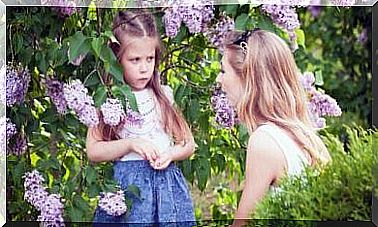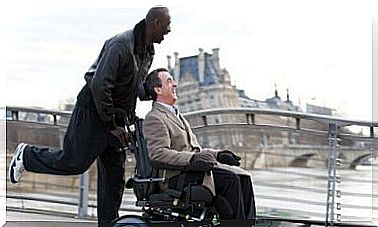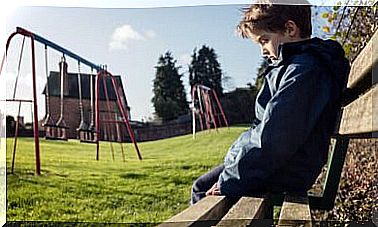Passive Violence: Deep Wounds That Seem Superficial

Speaking of passive violence often seems paradoxical. Violence sends us back to an active position, therefore at first the two concepts may seem antithetical. However, in everyday life we have many times to deal with people who, without raising their voices or pronouncing strong or sharp words, make us feel attacked. Some situations also work the same way.
Those who are victims of passive violence feel indefinable malaise and dull irritation. At the same time, it transforms itself into an agent of that mechanism. This happens to the individual as well as to groups.
Passive violence, or a set of passive-aggressive attitudes, can be defined as an unconscious force. The result of the inability or impossibility of resolving a conflict with the authority, in one or several of its different manifestations, or with an adverse situation. There is a feeling of helplessness or vulnerability that turns into resignation. This resignation, however, is full of anger and frustration, which will eventually manifest themselves directly.
Daily situations of passive violence
The most obvious examples of passive violence are seen in adolescents. The father or mother tells them to put order, for example, and they respond with a sound like “Yeee, ooooraaa!”. Then, they never obey.

It is also common with the little ones. They have a tantrum, and if in the end we don’t give in, they throw themselves on the ground to hurt themselves (self-harm) or, in other cases, a few days later they break the most expensive porcelain in the house “without wanting to”.
Even with adults there are thousands of examples of passive violence, and how! When we talk to someone who pretends not to have heard us or when they give us a biting criticism, disguised as advice or suggestion. Even when they put us between a rock and a hard place and who kindly ask to decide. And a long etc.
Passive violence and authority
In general, passive violence is harbored in situations that include power relationships. It is precisely this power that usually prevents or limits the expression of aggressive feelings. For this reason, an artificial resignation occurs, which then translates into passive violence.

Even authoritative figures, therefore, often make use of passive violence. Parents first of all, but also employers, teachers, doctors, etc. Sometimes they don’t formally hold a position of power, but the other person gives them that connotation. Like when one of the members of a couple has more control or influence in the relationship.
These power figures also generate various episodes of passive violence. They know that those under their protection do not have total freedom to react to their excesses. Like when the employer asks us to work just an extra hour a day, for the good of all, or when our partner says he has to help us because we wouldn’t be able to do it alone.
Passive violence is exercised by generating guilt, belittling, humiliating or using the other person, even if indirectly. Sometimes it is very difficult to spot it, because it is often contained in sweet phrases and good manners. It is hardly ever aware.
The effect of passive violence on human groups
Many passive violence behaviors are transmitted and nurtured within society. As when walking down the street and a beggar asks for alms; at times it is not possible or we do not want to give such help and, without adding anything else, he says “May God bless you!”. In many cases, he actually doesn’t want God to bless us, but rather to burn us in hell. And this is the message it conveys between the lines.
Conduct of explicit or passive violence provokes responses of the same type. The stressed employer leads some employees to take much longer to accomplish their tasks. The authoritarian professor motivates undisciplined conduct, veiled or not. The controlling mother can raise chaotic children. The politician who buys the votes rightly feeds the number of citizens who do not pay taxes.

The most harmful aspect of these behaviors of passive violence is that, not being explicit, they generate confusion and escape more easily from conscience. When the adolescent is reproached for not having fulfilled the order, he replies “I already told you that now I do it!”; if you tell your employer that his comment is unfair, he will likely lecture us on discipline and efficiency; and the partner may victimize himself or be genuinely surprised when we tell him he is treating us like idiots.
We must learn to put a stop to these manipulation mechanisms. It is important to deal directly with conflicts so that they do not motivate or fuel this type of violence. This does not mean saying everything that goes through our heads without any filter. It is just a matter of trying to increase one’s ability to say, in a clear and calm way, everything that we do not like.









